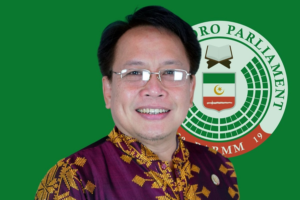6 Factors Why Cigarette Smuggling in Zamboanga Peninsula Rampant
Cigarette smuggling poses various challenges for the region, impacting both the economy and public health.

Photo by Tan Kaninthanond on Unsplash
Cigarette smuggling is a persistent issue in the Zamboanga Peninsula, with the illegal trade of tobacco products continuing to thrive despite efforts to combat it.
This illegal activity poses various challenges for the region, impacting both the economy and public health.
To understand why cigarette smuggling in Zamboanga Peninsula goes unabated, Sun Times Philippines delves into the underlying factors contributing to its prevalence.
1. Proximity to Neighboring Countries
Zamboanga Peninsula’s geographical location plays a significant role in the smuggling of cigarettes. The region is close to Sulu that shares borders with Malaysia and Indonesia.
Both countries have significantly lower tobacco prices compared to the Philippines. This price differential creates a lucrative opportunity for smugglers to bring in cheaper cigarettes from neighboring countries and sell them at a higher price in Zamboanga Peninsula.
2. Weak Law Enforcement
The lack of effective law enforcement is another key factor enabling the unabated cigarette smuggling in the region.
Insufficient resources, corruption, and inadequate coordination among various law enforcement agencies contribute to the inability to curb this illegal trade effectively.
Smugglers take advantage of these weaknesses, exploiting loopholes in the system and evading detection and prosecution.
3. High Taxes and Regulatory Burdens
The Philippines has implemented high taxes and strict regulations on tobacco products to discourage smoking and generate revenue.
However, these measures inadvertently contribute to the rise of cigarette smuggling.
The significant price difference between legally sold cigarettes and smuggled ones creates a strong demand for the cheaper, illicit products.
Smugglers capitalize on this demand, undermining the government’s efforts to control the tobacco market.
4. Inadequate Public Awareness on Cigarette Smuggling
Insufficient public awareness about the negative consequences of cigarette smuggling also hampers efforts to combat this issue.
Many consumers may unknowingly purchase smuggled cigarettes without realizing the potential risks associated with these products.
Educating the public about the dangers of purchasing and consuming illicit tobacco can help reduce the demand and ultimately discourage smuggling activities.
5. Organized Crime Networks in Cigarette Smuggling
Cigarette smuggling in Zamboanga Peninsula is often linked to organized crime networks that operate across borders.
These networks have the resources, connections, and expertise to facilitate the smuggling of large quantities of cigarettes.
Their involvement further complicates law enforcement efforts, as they are often involved in other illegal activities and have the means to evade detection.
6. Limited Penalties and Deterrence
The penalties and deterrence measures for cigarette smuggling in Zamboanga Peninsula may not be strong enough to dissuade smugglers from engaging in this illegal trade.
Stricter penalties, increased fines, and more effective prosecution are necessary to create a stronger deterrent for those involved in smuggling activities.
Cigarette smuggling in Zamboanga Peninsula persists due to a combination of factors, including its proximity to neighboring countries, weak law enforcement, high taxes and regulatory burdens, inadequate public awareness, organized crime networks, and limited penalties.









